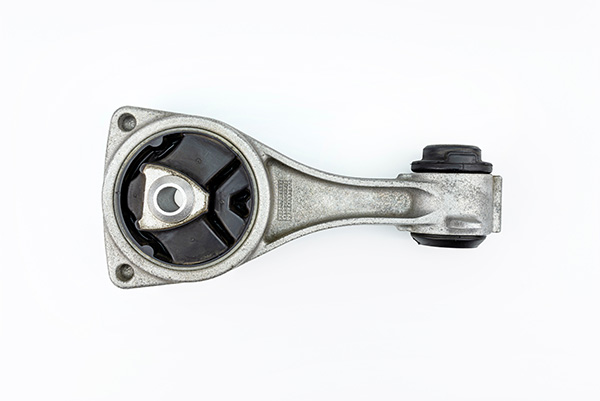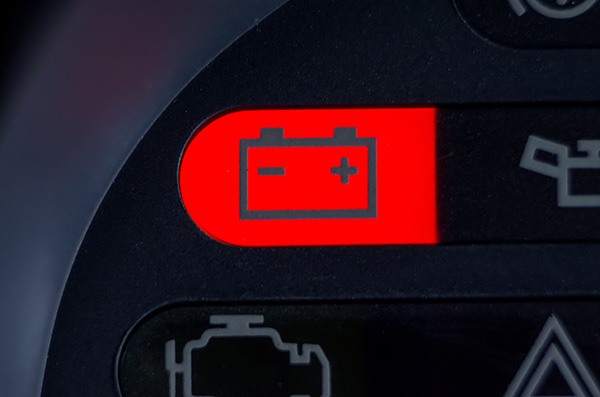Posted on 1/30/2026
%20copy.jpg)
Coolant leaks on Mercedes vehicles can be frustrating because they don’t always leave a big puddle. A lot of them start as a slow seep that burns off on a warm engine, or a leak that only shows up after a long drive. The result is usually the same: the coolant level keeps dropping, the heater output gets inconsistent, or you start noticing a sweet smell after shutting the car off. Catching the leak early is worth it because modern cooling systems don’t tolerate low coolant for long. Why Mercedes Coolant Leaks Can Be Hard To Spot Mercedes engines run hot and are tightly packaged under the hood. That means small leaks can evaporate before they ever reach the ground. Plastic cooling components also age with heat cycles, and once they start to weaken, they can crack or warp in ways that leak only under pressure. Many Mercedes models also use multiple coolant hoses and quick-connect fittings. Those connectors are convenient, but after years of heat and vibra ... read more
Posted on 12/23/2025
Mercedes-Benz announced that it will introduce new products at an accelerated pace. By 2027 Mercedes will roll-out 40 new and "refreshed" models. It will be a combination of internal combustion engine (ICE), hybrid, and battery-powered vehicles (EV), including all-electric CLA and AMG electric sedan. To support hybrid and electric vehicle production, Mercedes recently strengthened its partnership with LG Energy Solutions, a South Korean battery manufacturer. In addition to last year's deal to deliver 50GWh of battery cells, LG Energy Solutions agreed to deliver additional 107 GWh of battery cells to Mercedes plants in Europe and the United States over the next 10 years. That's enough battery cells to produce almost 2 million all-electric vehicles over the 10 year period. The agreement with LG Energy Solutions is a part of Mercedes-Benz plan to convert 50% of its production to hybrid and EV models by 2030. In the meantime, at MB Clinic we are ready to service ... read more
Posted on 12/19/2025

Hitting 100,000 miles in a Mercedes S-Class is a milestone. The car may still feel solid and comfortable, but a lot of critical parts have been working hard for a long time. This is the point where a smart maintenance plan can keep the car feeling like a flagship instead of letting age catch up all at once. Why 100,000 Miles Is a Big Deal for an S-Class The S-Class carries more weight, more electronics, and more comfort features than most vehicles on the road. That means its engine, suspension, and electrical system have had more to do over those first 100,000 miles. Normal wear reaches a point where small leaks, tired bushings, and marginal sensors start to show themselves. At this mileage, the goal is to move from “fix it when it breaks” to “refresh the important systems before they cause problems.” When we look over higher-mileage S-Class models, we focus on the components that protect reliability, safety, and ride quality first ... read more
Posted on 11/28/2025

A worn transmission mount can make a smooth, quiet Mercedes feel rough and noisy. The signs often start small, then build into vibrations, thumps, and shifting issues that are hard to ignore. If your car has begun to feel less refined, especially when changing gears or taking off from a stop, the transmission mount may be the reason. What a Transmission Mount Does in a Mercedes The transmission mount secures the gearbox to the chassis and isolates vibration so the cabin stays calm. Most modern Mercedes models use rubber or fluid-filled mounts that absorb movement when the engine torques under acceleration. When the mount ages, collapses, or tears, the transmission can sit lower or shift around, which sends noise and vibration into the body of the car. Common Symptoms You Will Notice First A failing transmission mount often shows up as a low, droning vibration through the seat or center console, especially when you shift into Drive or Reverse. You ... read more
Posted on 11/11/2025
If you have not yet brought your Mercedes to MB Clinic for a fall checkup, now is the time. While the weather is pleasant this week, next week rain and snow are in the forecast for Denver. So use the last few days of sunshine to get your car ready for the winter. We recommend fluid checks, wiper check, tire inspection and battery check. Fluids should be checked regularly, but of course, before winter, antifreeze is vital, so a quick check of the antifreeze is highly recommended. Tires are crucial for safe driving in winter weather - making sure there is sufficient tread remaining to evacuate water is vital to prevent hydroplaning. Proper tire inflation not only improves mileage, but extends tire life and improves handling – a win all around. If you use winter tires, wait no longer, change to snow tires now. Finally, we highly recommend battery testing. Cold weather can make a marginal battery fail. While during the warm summer months a weak battery could do the job, cold ... read more
Posted on 10/31/2025

Sprinter vans are the backbone of many businesses, especially during delivery season. Whether you’re transporting packages, tools, or equipment, your van needs to be reliable day in and day out. The extra miles and heavy loads during the busiest time of year can push every system to its limit. Skipping maintenance might save time in the short run, but it often leads to costly breakdowns when you can least afford the downtime. Here’s why scheduling maintenance before delivery season starts is one of the smartest decisions you can make. The Demands of Delivery Season During peak months, delivery vans see more miles, more stop-and-go driving, and longer hours on the road. This constant use accelerates wear on brakes, tires, fluids, and suspension components. A van that seemed fine in the summer may start showing signs of stress under these heavier demands. Taking care of maintenance beforehand ensures your vehicle can keep up without surprises. Oil ... read more
Posted on 10/12/2025
Your Mercedes is a marvel of modern engineering, yet occasionally it will require help. When the Mercedes onboard computer illuminates the “check engine light” warning on the dashboard, it’s your vehicle asking for help. There are literally thousands of conditions that can cause the check engine light to come “on”. Fortunately, not all require extensive diagnostics or time-consuming repairs. The simplest, and easiest to correct cause of the check engine light is a faulty gas cap – so gas cap replacement is all that’s needed. But more often than not, there will be diagnostics involved, and a repair to me made. Here are top 10 most frequent reasons for the Mercedes check engine light, in no particular order: Faulty oxygen sensor Worn spark plugs Failing ignition coils Loose or cracked gas cap Failing catalytic converter Mass Air Flow (MAF) sensor malfunctioning Emission system problems (EVAP sensor, EGR valve) Transmission problems Ele ... read more
Posted on 9/26/2025

Modern Mercedes-Benz vehicles are equipped with sophisticated electrical systems, and at the center of it all is the Battery Management System (BMS). This system monitors, regulates, and protects the vehicle’s battery, helping to ensure long-term performance, especially in newer models with features like start-stop technology, regenerative braking, and multiple onboard computers. But as smart as these systems are, they’re not immune to failure. When the BMS starts acting up, it can lead to a host of electrical issues that are confusing to diagnose and frustrating to live with. Understanding why these systems fail and what to do when they do will help you stay ahead of bigger problems. What Does the Battery Management System Do The BMS isn’t just a fancy monitor. It’s a network of sensors, software, and electronic control units that handle everything from battery voltage regulation to energy distribution. Its job is to ensure the battery remai ... read more
Posted on 9/23/2025
Few things make drivers more anxious than a mysterious light on the dash—especially one shaped like an exclamation point inside a tire. While it can be startling, this light is designed to keep you safe, not to ruin your day. At MB Clinic in Denver we see cars come in with this exact warning, and most of the time the solution is simpler than owners expect. The exclamation mark inside a horseshoe shape (sort of like a flattened tire) is the Tire Pressure Monitoring System (TPMS) alert. It likely means that one or more tires have lost pressure and are underinflated. Newer Mercedes models will also display an outline of a car and indicate which tire is underinflated. Driving with low tire pressure can reduce fuel economy, wear out tires faster, and even lead to a blowout. Pull over when safe, visually inspect the tires, and use a pressure gauge to confirm the readings. If you’re unsure, but the tire is not flat, swing by our shop—we’ll check and inflate them prope ... read more
Posted on 8/29/2025

Mercedes-Benz has built a legacy on engineering excellence, timeless design, and luxury that stands the test of time. From elegant sedans to high-performance sports cars, the brand has introduced many models that have not only defined their eras but also influenced the entire automotive industry. While every Mercedes-Benz carries the brand’s signature style and quality, some have become true icons. These models represent the perfect blend of innovation, performance, and design that has made Mercedes-Benz one of the most respected names in the world. Mercedes-Benz 300 SL Gullwing (1954–1957) Few cars have captured the imagination of enthusiasts like the 300 SL Gullwing. Famous for its distinctive upward-opening doors, this sports car was a technological marvel of its time. It was the first production car to feature fuel injection, which helped it achieve impressive speed and performance for the 1950s. The Gullwing remains a symbol of post-war automotive ... read more